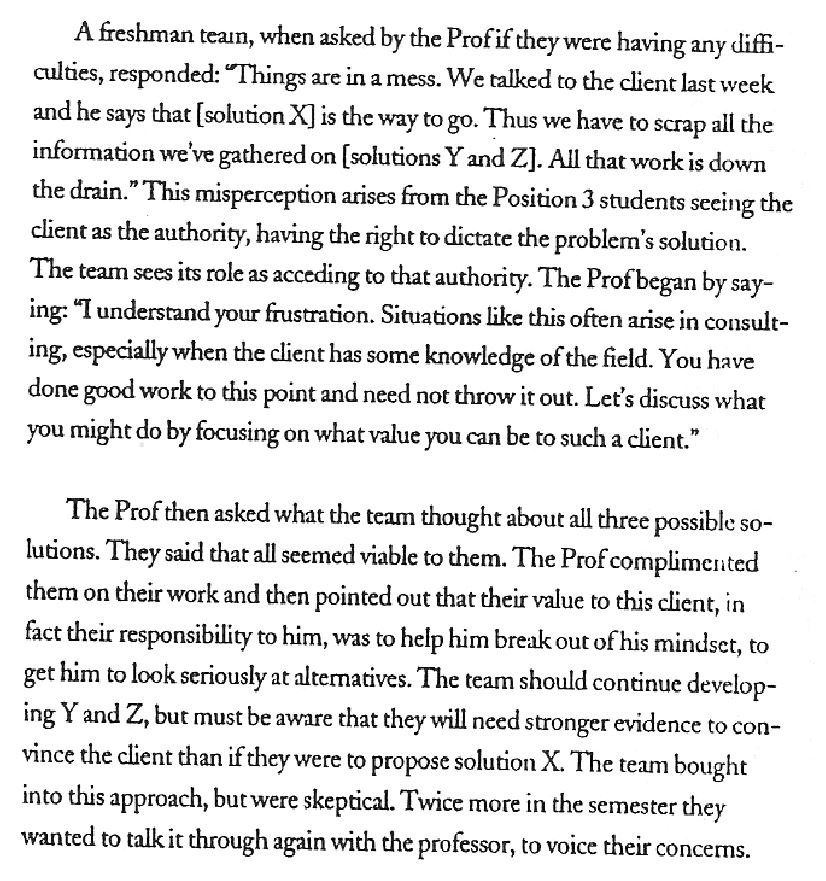
http://introvertdear.com/2015/05/13/the-science-behind-why-introverts-struggle-to-speak/
If you do not know your Meyer's personality
- take a few online tests
http://www.humanmetrics.com/cgi-win/jtypes2.asp
http://www.personalitypathways.com/type_inventory.html
etc. - there are many version of this test online, in the end, go with your gut feeling of what matches the best. Also, keep in mind, your personality at work or school might be different than your personality at home or around friends in a casual setting.

Take the above Kolb test.


Not only should you recognize your own learning and personality styles, but you should also be able to identify the learning and personality styles of those around you so that you can most effectively communicate your ideas with others. Become familiar with all of the different styles, and provide explanations and presentations that appeal to a wide and diverse audience.
What? ~~~~~~~~~~~~~~~~~~~~~~~~~~~~~~~~~~~~~~~~~~~~~~~~~~~~~~~~~~~~
How? ~~~~~~~~~~~~~~~~~~~~~~~~~~~~~~~~~~~~~~~~~~~~~~~~~~~~~~~~~~~~~
What if? ~~~~~~~~~~~~~~~~~~~~~~~~~~~~~~~~~~~~~~~~~~~~~~~~~~~~~~~~~

From link
William Perry claimed (and his claims have been substantiated by subsequent research) that college students (but others, too) "journey" through 9 "positions" with respect to intellectual (and moral) development. These stages can be characterized in terms of the student's attitude towards knowledge. The 9 positions, grouped into 4 categories, are:
- Dualism/Received Knowledge:
There are right/wrong answers, engraved on Golden Tablets in the sky, known to Authorities.- Basic Duality:
All problems are solvable;
Therefore, the student's task is to learn the Right Solutions - Full Dualism:
Some Authorities (literature, philosophy) disagree;
others (science, math) agree.
Therefore, there are Right Solutions, but some teachers' views of the Tablets are obscured.
Therefore, student's task is to learn the Right Solutions and ignore the others!
- Rapaport's speculation, part 1: Perhaps we begin as Dualists because we begin by accepting information from the world and reacting to it.
- Basic Duality:
- Multiplicity/Subjective Knowledge:
There are conflicting answers;
therefore, students must trust their "inner voices", not external Authority.- Early Multiplicity:
There are 2 kinds of problems:- those whose solutions we know
- those whose solutions we don't know yet
Student's task is to learn how to find the Right Solutions. - Late Multiplicity:
Most problems are of the second kind;
therefore, everyone has a right to their own opinion;- or
therefore, it doesn't matter which (if any) solution you choose. Student's task is to shoot the bull.
(Most freshman are at this position, which is a kind of relativism)
- Rapaport's speculation, part 2: Perhaps we evolve into Multiplists after we learn things tacitly and have internal or implicit "feelings" or intuitions about things, but not conscious or explicit beliefs that can be explained or justified.
- Early Multiplicity:
- Relativism/Procedural Knowledge:
There are disciplinary reasoning methods:
Connected knowledge: empathetic (why do you believe X?; what does this poem say to me?)
vs. Separated knowledge: "objective analysis" (what techniques can I use to analyze this poem?)- Contextual Relativism:
All proposed solutions are supported by reasons;
i.e., must be viewed in context & relative to support.
Some solutions are better than others, depending on context.
Student's task is to learn to evaluate solutions.- Rapaport's speculation, part 3: Perhaps we then evolve into Contextual Relativists when we can express our intuitions in language and seek justifications for them and relationships among them.
- "Pre-Commitment":
Student sees the necessity of:- making choices
- committing to a solution
- Contextual Relativism:
- Commitment/Constructed Knowledge:
Integration of knowledge learned from others with personal experience and reflection.- Commitment:
Student makes a commitment. - Challenges to Commitment:
Student experiences implications of commitment.
Student explores issues of responsibility. - "Post-Commitment":
Student realizes commitment is an ongoing, unfolding, evolving activity
- Commitment:

`````````````````````````````````````````````````````````````````````````````
`````````````````````````````````````````````````````````````````````````````
`````````````````````````````````````````````````````````````````````````````
`````````````````````````````````````````````````````````````````````````````
`````````````````````````````````````````````````````````````````````````````
Class participation grade:
1. List all of the people in your project team (including yourself), and discuss their Meyers personality type & Kolb learning style.
a.) What is the best way to communicate with them?
b.) What part of your ENGR project are they best suited to be in charge of?
2. Perry's Scheme
The higher Perry levels are attained by those who realize "ambiguity is common to most questions", are able to honestly consider alternative points of view, and understand the context in which different viewpoints apply.
Choose a subject that you currently have a very one sided view about, and see if you can broaden your perspective to be more understanding of the alternate side. (For or against global warming? For or against a political party? For or against a particular philosophy or religious ideology? For or against organic non-GMO foods? For or against a particular building development, energy resource, technology, or product?)
Watch the TED talk "On Being Wrong"
http://www.ted.com/talks/kathryn_schulz_on_being_wrong?language=en
Often, lower level dualist views are maintained by those who have a hard time admitting they are wrong. Expanding incomplete viewpoints, adapting, and incorporating new information and perspectives often involves admitting being wrong in one or more areas!
















































